ASEAN-日本 友好協力50年記念 特別イベント開催-筑波会議3日目
Special Event to Commemorate 50th Year of ASEAN-Japan Friendship and Cooperation - Tsukuba Conference Day 3
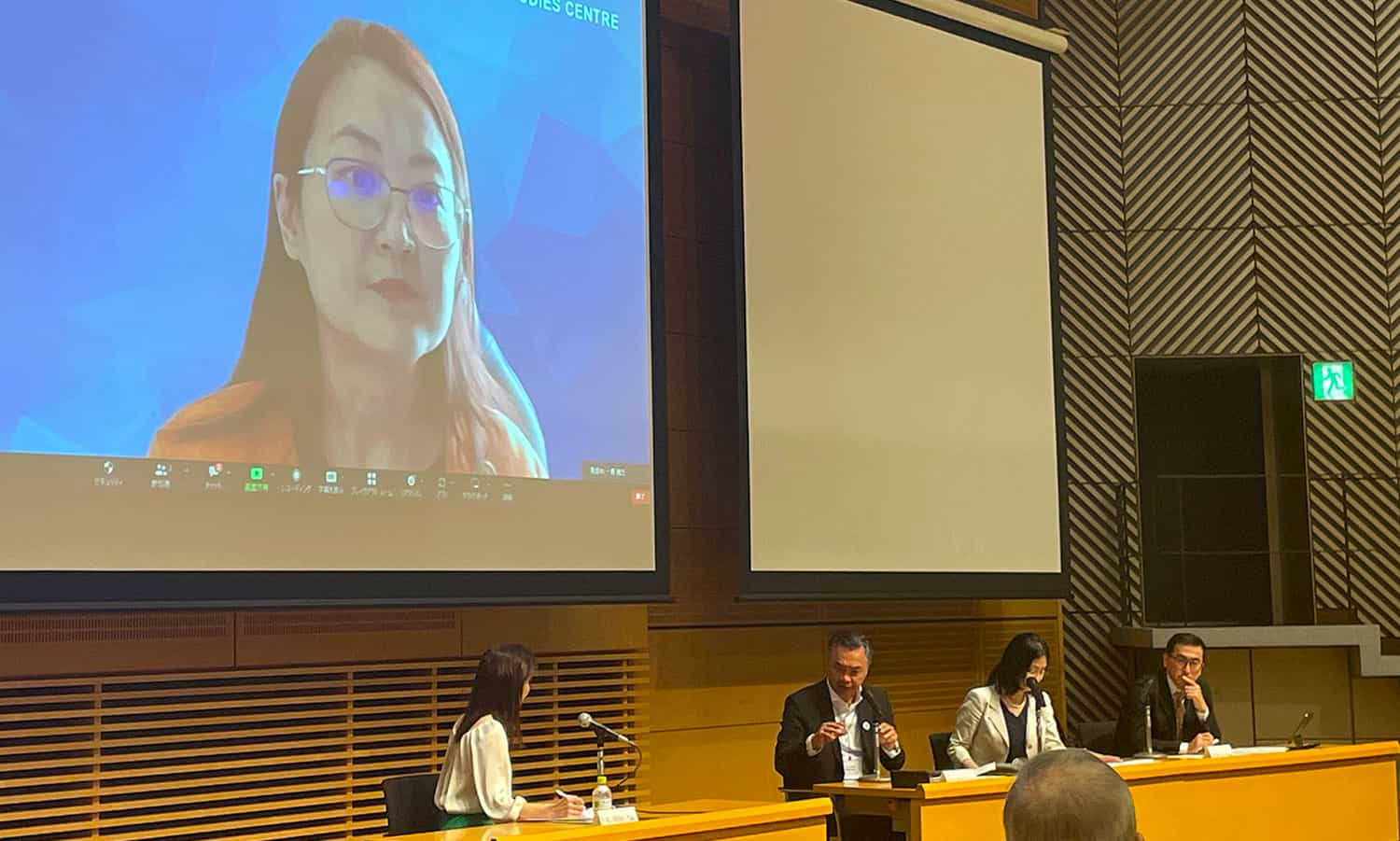
世界の研究者が、つくばに集まり熱い議論を繰り広げる「筑波会議」。最終日の9月28日には、ASEANと日本の友好協力50年を記念した特別イベントが開かれました。
第一部「次世代の持続可能な開発のための革新的な教育活動:SEAMEO域内と日本におけるベストプラクティスの共有」(共催:東南アジア教育大臣機構(SEAMEO))では、当該地域からの若い学生が集まり、東南アジア諸国と日本の初等・中等教育における革新的な取り組みの成功事例をもとに、新世代の課題への対応について思索を深めました。
第二部「日本&ASEAN、激変の世界にどう対処できるのか」(共催:政策研究大学院大学(GRIPS))では、GRIPSシニア・フェローの飯村 豊 氏によるメッセージに始まり、1時間半に及ぶ議論となりました。飯村氏は、駐インドネシア日本大使や駐フランス日本大使を歴任。長い外交官経験から、ウクライナ情勢を含む国際情勢に対する現状認識について語りました。
そして、GRIPSと提携関係のあるインドネシア外交政策コミュニティ(FPCI)の創設者で会長であるDino Patti Djalal氏(元駐アメリカ・インドネシア大使)による基調講演へと続きました。氏は、「いわゆる"グローバルサウス"は、いまの世界秩序は、現状を反映していないと考えていて、新たな世界秩序が必要である。ウクライナ情勢の変化などによって、ASEANは国際社会での立ち位置や行動原則に立ち返り、創造的同盟(creative alignment)を模索している。対日関係においては、戦後日本のインフラ充実に向けた一貫した経済援助と非軍事的な外交に絶大な信頼(trust)を寄せるに至った。今後も、国民と国民(people to people)の関係を通して日本との協力関係を一層深め、人材育成など地域の発展に資する活動を加速すべきだ。それが、Next 50年のリーダーを生むことに繋がり、より良い地域秩序そして国際秩序を生むことに繋がる。」と述べました。
その後、ディノ・パティ氏を含む4名によるパネル・ディスカッションとなりました。シンガポールからYusof Ishak Instituteの Sharon Seah Li-Lian氏、神奈川大学の大場 三枝 教授、筑波大学の野村 名可男 准教授が登壇。
ロシアによるウクライナ侵攻という、第二次世界大戦後、前例のない事態を前に、日本とASEAN諸国がどのように協力して困難な情勢に対処していくのか、様々な角度から議論が繰り広げられました。
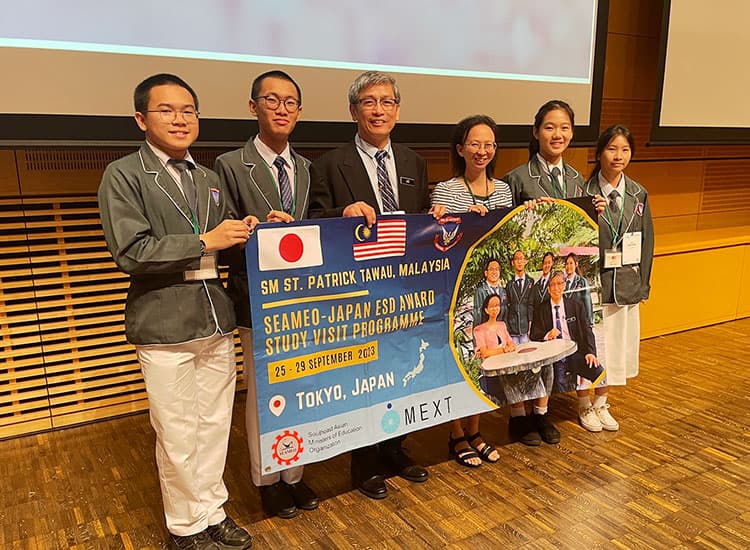
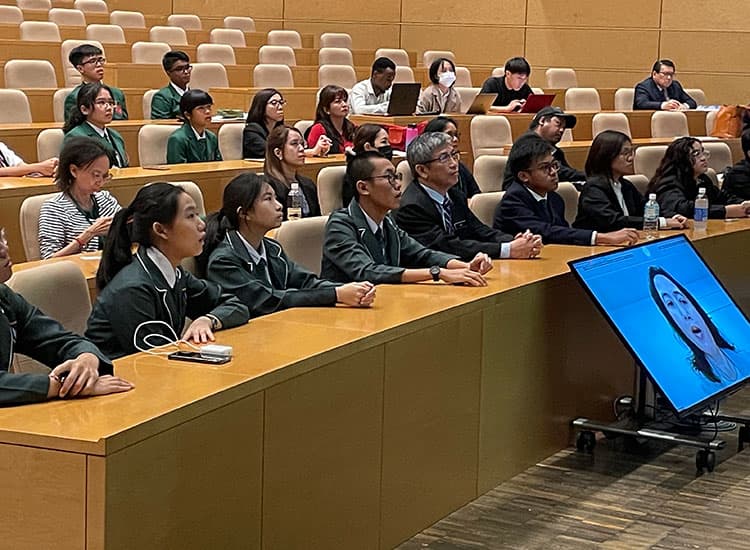
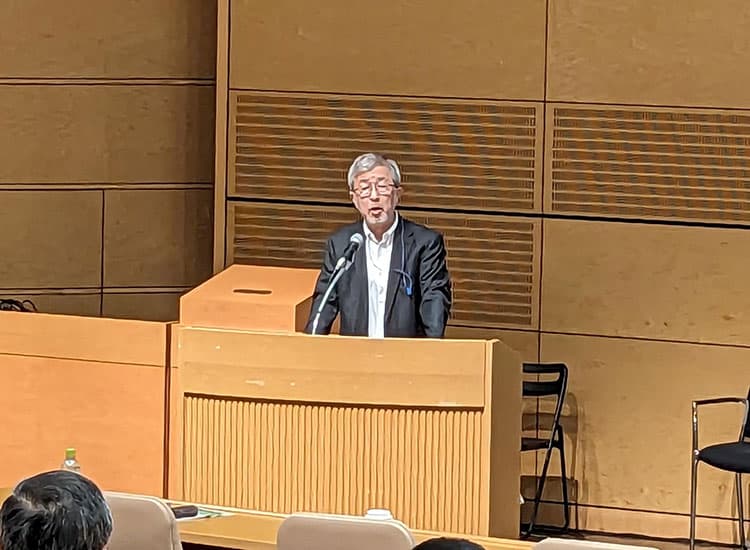
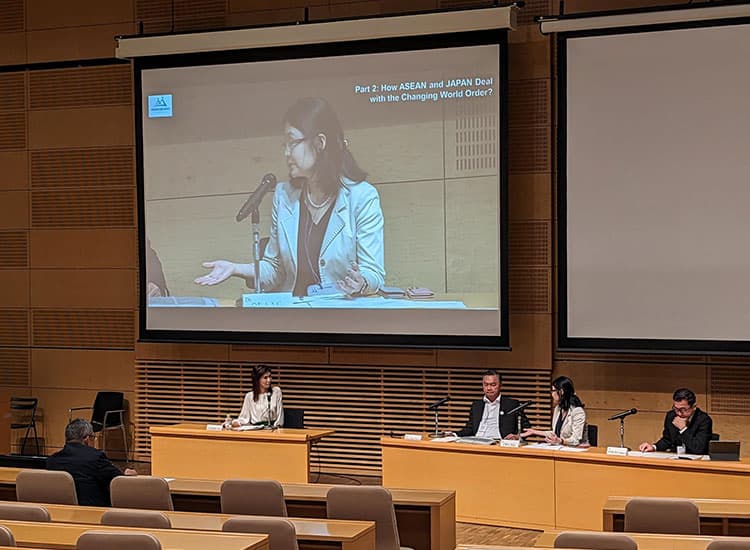

Heated discussions take place by researchers from around the world at the Tsukuba Conference every two years. On September 28, the final day of the Conference this year, a special event was held to commemorate 50 years of friendship and cooperation between ASEAN and Japan.
The first session was "Innovative Educational Activities for the Sustainable Development of the Future Generation: Sharing the Best Practices from the SEAMEO Region and Japan", co-organized by the Southeast Asian Ministers of Education Organization (SEAMEO). By bringing young students together from the region and introducing successful cases of transformative programs in elementary and secondary education, the session helped the participants learn more about coping with the challenges of the next generation.
The second session was "How will ASEAN and JAPAN Deal with Changes in the World Order?" and was co-hosted by the National Graduate Institute for Policy Studies (GRIPS). The session began with a message from Mr. IIMURA Yutaka, Senior Fellow of GRIPS, followed by an hour and a half of discussion. Mr. IIMURA has served as Ambassador of Japan to Indonesia and Ambassador of Japan to France.
This was then followed by the keynote address by Dr. Dino Patti Djalal, former Indonesian Ambassador to the United States and founder and president of the Foreign Policy Community of Indonesian (FPCI), affiliated with GRIPS. Dr. Djalal stated as follows:
“The countries of the so-called Global South do not believe that the current world order reflects emerging realities. We need to create a new one. The drastic transformation of world affairs, especially the situation in Ukraine, has prompted ASEAN to reflect on its position and principles in the international community and to seek ‘creative alignments.’ In its relations with Japan, ASEAN has placed a great deal of trust in Japan’s consistency in terms of its economic assistance for infrastructure development and non-military diplomacy since the end of World War II. Japan should further deepen cooperation with ASEAN through ‘people-to-people’ relations and focus on human resource development for the region. This will surely lead to the creation of leaders for the next 50 years and the building of a better regional and international order.”
The main part of the second session featured a discussion among four panelists: Mr. Dino Patti, Ms. Sharon Seah Li-Lian of the Yusof Ishak Institute in Singapore, Prof. OBA Mie of Kanagawa University, and Assoc. Prof. NOMURA Nakao of the University of Tsukuba. The panelists discussed various aspects of how Japan and ASEAN countries should cooperate to cope with the global challenges that have been unprecedented since the end of World War II, such as Russian aggression against Ukraine.












